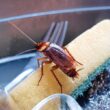Geraniums are popular plants that you’ll find in gardens and yards all over. And we can see why, they’re beautiful!
But many people aren’t sure if deer will eat their geraniums or if these plants are deer resistant. This guide will cover everything you need to know.
Table of Contents
Are Geraniums Deer Resistant?
If you are a gardener in an area that has a deer population, then you’ve probably experienced the heartache and frustration of finding out that your garden is being treated like a free buffet. The good news is that there are lots of deer resistant plants, and you can use these plants to your advantage.
What are we talking about when we say that something is deer resistant? This basically means that there are plants that most deer won’t even touch. If a plant has an unpleasant smell, a bitter taste, or a strange texture, many deer will stay clear of it. Also, deer tend to avoid toxic plants. There are exceptions, but we will address this in more detail a little later.
A favorite addition to many gardens, geraniums are deer resistant. Its characteristic, fuzzy leaves and pungent smell are what usually causes a deer to look for something else to eat.
However, you should never assume that the deer in your yard will always avoid your geraniums. If the deer in your area are hungry enough, or if the food supply is scarce, your geraniums are going to start to look pretty tasty.
There are a couple of different varieties of geraniums, and they each have their own level of deer resistance. Probably the most popular and familiar geraniums are annuals known as pelargoniums. You can find them in just about every garden center, and they are used a lot in potted arrangements. Pelargoniums are known to be pretty deer resistant, and most deer won’t go near them due to their smell and texture.
Perennial geraniums, also known as cranesbill, are also fairly deer resistant. Geranium macrorrhizum and Geranium clarkei are the varieties of perennial geranium that are the most deer resistant, while Geranium endressii is often a deer favorite.
Do Deer Eat Geraniums?
As we discussed above, most geraniums are considered to be deer resistant. But does this mean that deer will never eat your geraniums?
Given the right situation and environmental conditions, deer will eat just about anything. However, your geraniums are usually not going to be a deer’s first choice. Most of the deer that are raiding your garden will make a beeline for tasty things such as tulips, hostas, lettuce, broccoli, carrots or corn, and they will avoid your geraniums.
A group of hungry deer won’t always pay close attention to what they’re eating, so deer might occasionally eat geraniums by mistake. If you have a geranium planted near a deer’s favorite food, then you may find that it’s been eaten along with your prized peas or spinach. Geraniums, as deer resistant as they are thought to be, are always fair game in the right circumstances.
Will Deer Completely Kill These Plants When They Eat Them?
Discovering that deer have eaten your geraniums can be very upsetting, especially if they were at the peak of their summer loveliness.
The good news is that geraniums tend to bounce back very nicely after being eaten by deer.
Think about it for a second. Most plants (geraniums included) could do with a bit of pruning at some point during the season. In fact, experienced gardeners know that snipping off spent blossoms and trimming back an annual will actually prolong its growth and bloom time. As long as the damage done by the deer was not too severe, the geranium should recover as it would from a pruning.
If marauding deer have eaten your geraniums and caused significant damage, then the best thing to do is to cut off any chewed pieces or badly damaged spots. Then give the plant a good soaking with a slow-release fertilizer. In most cases, you’ll be seeing new growth and buds within a few weeks.
How To Stop Deer From Eating Geraniums
Even though geraniums are considered to be deer resistant, it’s not a guarantee that these animals will always leave them alone. However, there are a few steps that you can take that may increase the odds that your plants will make it through the summer fairly unscathed.
Try Companion Plantings
Using companion plantings in your garden is an easy and economical way to stop deer from eating your geraniums. The idea with companion planting is that you plant other things that deer try to avoid, such as lambs ear, foxglove, daffodils, mint or sage, next to your geraniums.
These companion plants act like a shield, guiding hungry deer away from your geraniums.
Set Up A Motion-Activated Sprinkler
Motion-activated sprinklers are an excellent option if you want something that’s pretty good at stopping deer from eating your geraniums without actually hurting them. These kinds of sprinklers come in a variety of sizes, but they all basically work the same way.
The sprinkler head is a stake that you first attach to your garden hose, and then it’s placed in the ground in the areas that are most prone to deer. We advise using several, if possible, to give this method a chance to succeed. Once the motion-activated sprinklers are set up and ready to go, every time deer get near your garden, the sensors will go off, and they’ll get a spritz of water. After a few times, the deer usually get the hint and stay away.
Of course, this is not a fool proof method, and we suggest using it in combination with other techniques.
Deer Repellents Can Be A Good Option
Deer repellents, unlike many insect repellents, aren’t made with harmful chemicals. Instead, they contain a variety of ingredients that smell bad to deer. The theory is that once you spray the foul smelling stuff around the perimeter of your garden, then that will discourage deer from entering the space (and eating the geraniums inside).
You can go to your garden center and buy a commercially-made solution, or you can just make your own. If you opt to do it yourself, then you can use a couple of different recipes. There is no right or wrong combination of ingredients, as long as you put them into a gallon of water.
One recipe includes blending about three raw eggs with several tablespoons of hot sauce and minced garlic. Once you’re done blending it together, put the mixture into a gallon of water. Pour it into a spray bottle and spray around your plants.
You can also mix together things like dish soap, cayenne pepper, garlic, ammonia and vinegar. What you use can be dictated by the ingredients you have on hand.
Install Fencing
If you’re still having trouble with deer eating your geraniums, you may want to consider installing some type of fencing. It’s not uncommon to see a summer garden surrounded by fencing, but many people try to avoid it for aesthetic reasons.
There are several different kinds of fencing, and each one has its own pros and cons. For example, many people choose to put up mesh fencing. The mesh is made of metal and comes in a giant roll. Mesh fencing is relatively inexpensive, pretty easy to install and is quite effective at stopping deer from eating your geraniums. However, it’s not very attractive and may take away from the look of your garden.
Installing a wooden or chain-link fence is always an option, but it can be pretty expensive. Also, many people don’t want this kind of fence around their garden. However, there’s no denying that these fences are good at keeping the deer away from your geraniums.
The last fencing option is to put in an electric fence. Some people choose this kind because it’s less of an eyesore than some of the other fences. Electric fences are thought to train the deer to avoid the garden by giving them a small electric shock each time they stray too close to the garden. This method can be expensive, it’s not as humane as other methods, and it doesn’t always work in the long-term.
Conclusion
Deer typically won’t eat geraniums due to their deer resistant nature. However, that doesn’t mean it will never happen!
Thankfully, there are things you can do if you’re serious about protecting these plants. If you’ve tried everything we listed above and are still having trouble, let us know! We’ll help you brainstorm some other options.


